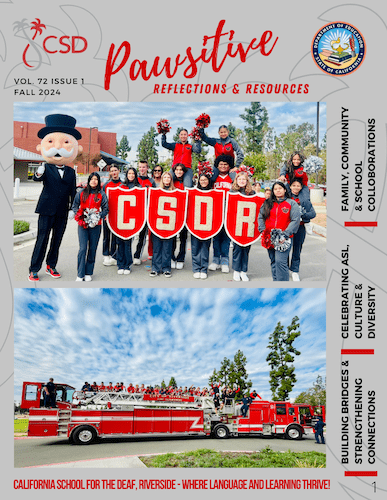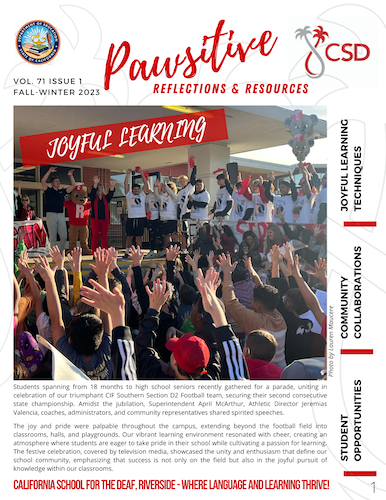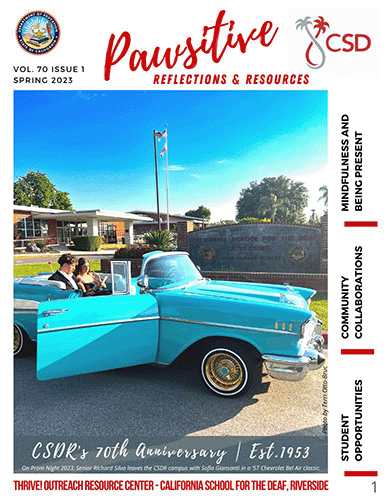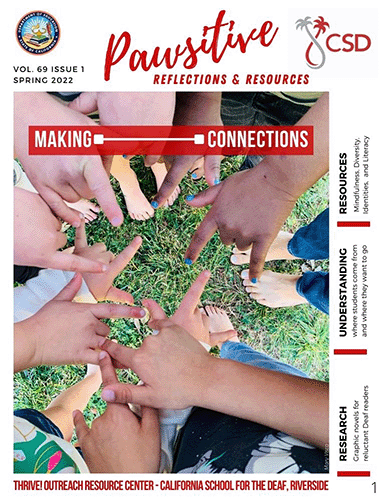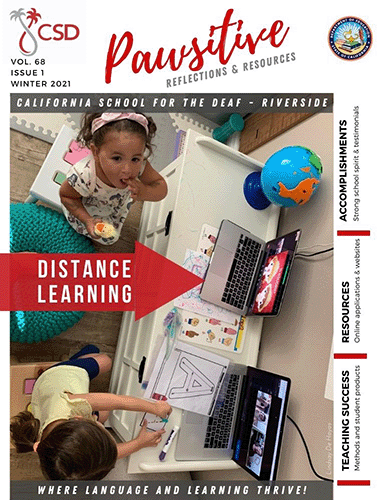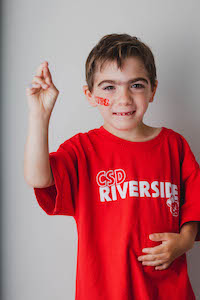
From digital storytelling to in-person connection, Outreach shapes how California School for the Deaf, Riverside (CSDR) communicates and celebrates—inside and outside our school walls.
What We Do
Communications & Storytelling
- Bi-monthly Cub Connection E-News featuring campus updates, student highlights, and upcoming events
- Weekly Family Newsletter with timely information and family-focused resources
- Biannual Pawsitive Magazine showcasing in-depth stories, milestones, and community pride
- Manage digital resources such as @CSDRiverside on Instagram, Facebook & Youtube
Family & Community Engagement
- School tours, presentations, and information sessions
- American Sign Language (ASL) classes for families
- Schoolwide events that bring families, students, staff, and partners together
- Annual, renowned Festival of Holidays, a signature celebration of culture, language, and community
- Literacy events that promote bilingual language development and a love of reading
Outreach, Training & Professional Learning
- Educational webinars, presentations, and professional development for families, educators, and community partners
- Placement guidance, trainings, and accessible resources across the region
Partnerships & Support
- Collaboration with local, state, and national organizations to expand opportunity and access
- Strategic partnerships with Seely Foundation, Family School Community Association, California School for the Deaf Riverside Alumni Association, and CSDR "C" Booster Club to secure grants and donations that fund programs and provide vital resources for students and families
Got questions or want to connect? Email us at thrive@csdr-cde.ca.gov — we’d love to hear from you. Be sure to follow us via @csdriverside on social media!
Social Media Presence
Facebook Icon
This site includes all upcoming events, important announcements, and celebrations. External Link Icon
Instagram Icon
When individuals post pictures at or about CSDR, please share by typing in @csdriverside and the hashtag #CSDR to help raise awareness in the community about CSD Riverside. External Link Icon
YouTube Icon
YouTube
The school uploads all its videos of ASL videos, student work, performances, and school information and announcements on the CSDR YouTube channel. External Link Icon
Paper Plane Icon

